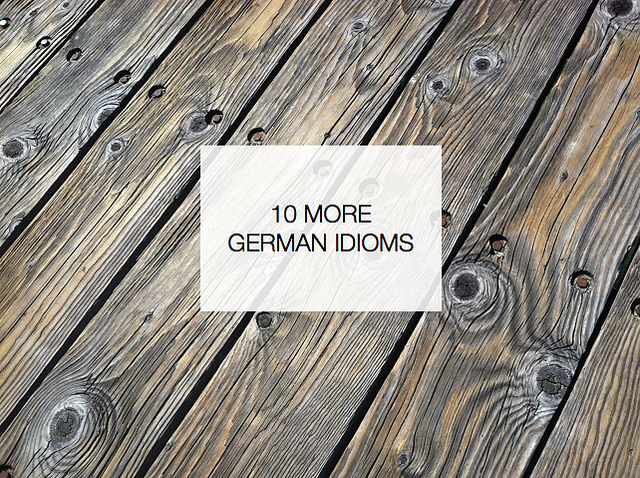
I’ve done posts like these in the last few years for NaBloPoMo, because learning idioms from other languages is fun and gives you insight on how language works.
Let’s see if I can come up with a few more fun German idioms for you this time around. They might distract you from the doomsday feeling that is going around.
All of these are (as far as I know) still pretty standard to use, unfortunately I don’t really know from where most of these originated. I use all of those idioms (some more than others). I hope you enjoy them!
Find the first rounds of idioms here, here, and here and here.
“Du hast wohl einen Clown gefrühstückt.” Seems like you had a clown for breakfast. You can use this phrase sarcastically, to say that somebody is not particularly funny, or if you want to point out that someone is extraordinarily silly.
“Klappe zu, Affe tot.” Close the lid, the monkey is dead. This means ‘that’s it, end of story.” It can be used to shut down any further discussion or to say that something has come to a tragic end.
“Mal mal den Teufel nicht an die Wand.” Don’t paint the devil on the wall. We use this to say that you shouldn’t expect the worst, but be hopeful.
“Eine Pappnase sein.” To be a cardboard-nose. Here’s another ‘clown-reference’. It means that someone is inept or silly (or both).
“Mal sehen wie der Hase läuft.” Let’s see how the bunny runs. It basically means that we have no idea how things are going to play out and we’ll have to wait and see. The English phrase would be “to see how the cookie crumbles”. There is also the phrase “Wissen, wie der Hase läuft” (to know how the bunny runs) and that means that you know the ins and outs of something.
“Er hat die Arschkarte gezogen.” He pulled the ass card. Self-explanatory, right? It means, ‘he drew the short straw’. (Very useful phrase, just saying.)
“Dir haben sie wohl etwas in den Kaffee getan.” Someone must have put something in your coffee. We use that to say that somebody lost their mind or to say ‘you’ve got to be kidding’.
“Sei kein Frosch!” Don’t be a frog. This can either mean “don’t be a chicken” or “don’t be a partypooper”.
“Es kostet nur einen Apfel und ein Ei.” It costs only an apple and an egg. This phrase means that something only costs peanuts or that it’s very inexpensive.
“Selbst ist die Frau.” Self is the woman. If you want a thing done right, do it yourself.
Teach me an idiom! Or ask me for the translation of an English idiom into German!


Tanja
November 14, 2016 at 3:35 pmI love these posts of yours….. and yes, they did lighten up my mood :)
san
November 14, 2016 at 7:05 pmYay – I am glad this lightened up your mood! :)
Feisty Harriet
November 14, 2016 at 5:07 pmBaaaahahaha! “Close the lid, the monkey is dead.” Favorite.
xox
san
November 14, 2016 at 7:04 pmOne of my favorites for sure :) :) (glad that one made you laugh!)
Heike Brand
November 15, 2016 at 10:29 amLass mal die Kirche im Dorf = Leave the Church in the village! (My personal favorite)
And “datt kostet nen Appel un’ nen Ei” is quite local to the Cologne area, isn’t it? ;)
Marie
November 16, 2016 at 4:38 amHaaaaaaaaa these are super amazing :) And many relevant right now.
Lisa of Lisa's Yarns
November 16, 2016 at 5:52 amHa, these are awesome! I love learning the idioms of other’s languages. It makes me realize why idioms are tough for non-native speakers as I definitely needed your explanation for what most of them meant!
Kate
November 23, 2016 at 11:11 amLOL at “Seems like you had a clown for breakfast.” I want to use this one in English…